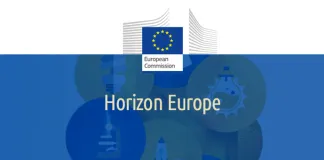CAPTUS
Relevant project information
Dates
Project website
Role of CIRCE
Grant agreement number
Funded by

Description and objectives
CAPTUS is an innovative action project that aims to demonstrate sustainable and cost-effective ways to produce high value-added renewable energy certificates (RECs) in energy-intensive industries (EIIs) by valorizing industrial carbon emissions and integrating surplus renewable electricity.
Three complete REC value chains will be demonstrated in 3 different demonstration sites: Bioprocess based on a two-step fermentation to produce triglycerides in a steel plant. Lipid-rich microalgae cultivation followed by hydrothermal liquefaction to produce bio-oils in a chemical plant. Electrochemical reduction of CO2 to produce formic acid in a cement plant.
The overall objective of the CAPTUS project is to demonstrate sustainable and cost-effective ways to produce high value-added renewable energy certificates in EIIs by valorizing their carbon emissions and integrating renewable energy sources. To this end, different innovative solutions involving CO2 capture and conversion technologies will be developed and applied at 3 real TRL7 level demonstration sites (cement, steel and chemical plants), together with a detailed consideration of safety, environmental, social and business aspects. The full replication potential of the solutions will be evaluated through a cost-benefit analysis in 3 additional replicators.
Value proposition
- Advancing the European Science Base and Technological Competitiveness: We contribute to the advancement of the European science base while increasing technological competitiveness in the production of energy carriers and their integration with renewable electricity, as well as in value and carbon supply chains.
- Technology Demystification of Renewable Energy Value Chains: We perform technology demystification of renewable energy carrier value chains through demonstrations, a necessary step prior to commercial scale-up. This approach reduces technological risks and promotes confidence in the proposed solutions.
- Improving Sustainability in Value Chains: We strengthen sustainability in renewable energy carrier value chains by improving techno-economic efficiency and avoiding CO2/GHG emissions, economic losses or renewable energy curtailments, supported by a life cycle assessment. Our proposal goes beyond technical efficiency, considering the environmental and economic impact throughout the entire lifetime of the system.
Project partners
SINTEF, UNICAN, CSIC, UNIGE, SIG
CERTH, BBEPP, NOVIS, APRIA, DRAXIS, A4F, GF, RINA-C, ARC, HCH, GCPV, EEIP


